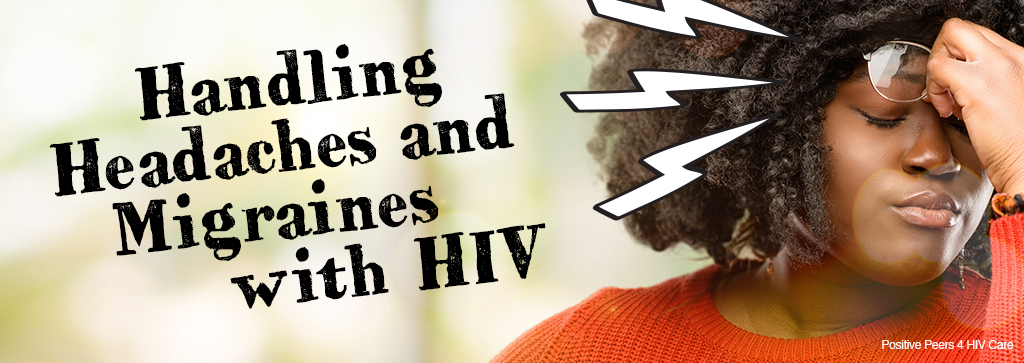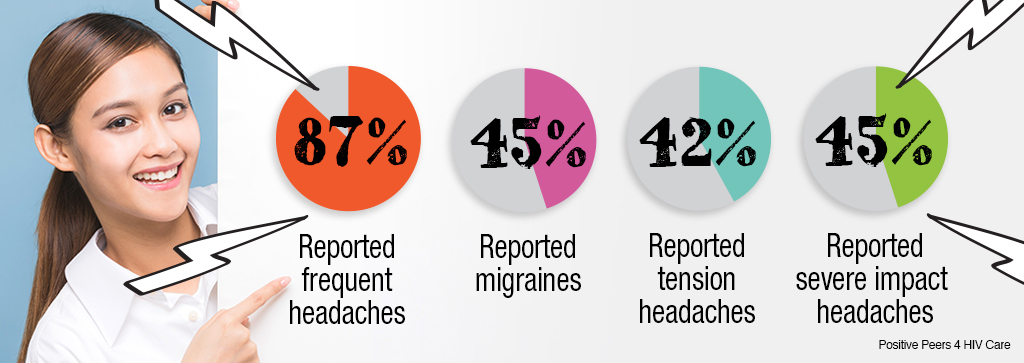
By: Ann K. Avery, MD, Infectious Disease Physician at MetroHealth Medical Center
Is there a connection between living with HIV and having headaches or migraines? People living with HIV have reported having far more headaches after being diagnosed. We understand how debilitating headaches can be. They slow you down, interrupt your focus, and drain your energy. 😰 Talk about annoying! Recurring headaches can disrupt your whole day. But where do headaches even come from? 🧐
Pain nerves in the brain 🧠 can cause migraines and tension headaches. Other causes include hangovers, low blood sugar, sinus congestions, or side effects of medication.
If a headache lasts longer than a few hours, it’s time to consult with your doctor. 👩🏽⚕️ Take note 📝 of new or abnormal headache symptoms and how frequently they occur. Headaches could be a sign of more serious health issues such as an aneurysm or a stroke, so don’t dismiss what’s bothering you. 🤕 Being proactive is one of the best ways to stay healthy, and MetroHealth has resources to help you.

Tips for dealing with headaches 🤕
It depends on what type of headaches you’re dealing with, but here are some tips to try if you’re experiencing one:
- Drink lots of water
- Try resting
- Use a cold compress on your head
- Consult your doctor about taking over-the-counter medications like aspirin (Bayer®, Bufferin®, Excedrin®, etc.), ibuprofen (Advil®, Motrin® IB, etc.), or acetaminophen (Tylenol® and others)
- Consider acupuncture to prevent chronic tension-type headache or migraine
According to the CDC, most Americans living with HIV do not have the disease under control, despite available medications to slow the course of the disease. Related symptoms could include constant throbbing head pain, nausea, vomiting, blurred vision, or sensitivity to light. 🤢 Just another reason it’s so important to take your meds 💊! If you’re experiencing migraines like this, reach out to us or one of our key health partners to set an appointment to work on a treatment plan.
But don’t just take our word for it. Here’s what the research is saying.

We've got the research 👩🏻🔬
A study conducted at the University of Mississippi investigated the connection between living with HIV and the type and frequency of headaches. They asked roughly 200 participants of a range of ages and identities about their headache symptoms and their HIV medical histories. Over 50% of the total participants reported headache symptoms. Though it wasn’t clear that there was any link to living with HIV.
A second study offered more insight. Researchers focused on headache frequency and its impact on quality of life for 119 participants living with HIV. Of the participants involved, 63% identified as men. The average age was 36 years, and participants had average CD4 counts of at least 500.
By the Numbers
Most participants (87%) reported having frequent headaches. 45% had migraines. 42% had tension-type headaches. 45% reported having substantial and severe impact headaches.
 Note: These patients are not representative of the entire HIV-positive population, and they varied on where they were in their treatment.
Note: These patients are not representative of the entire HIV-positive population, and they varied on where they were in their treatment.
The researchers suggested that several factors may play a role in the greater frequency of headaches in patients living with HIV, including the “metabolism of cerebral serotonin during viral infection.” Basically meaning, if left untreated, HIV can lead to lower levels of serotonin—the happy, mood-stabilizing hormone—in your brain, potentially increasing the frequency of your headaches. Nope, don’t like that!
So, what does this mean for you? Stay on top of your meds! 👏🏽👏🏽👏🏽 We can’t stress this enough. Pro Tip: Use the med tracker in the Positive Peers app. 📲 If you’re struggling with repeat headaches, please reach out to us. Together, we can come up with a plan. Two heads are better than one 👯♀️ (and heads without headaches are best of all!). 😉